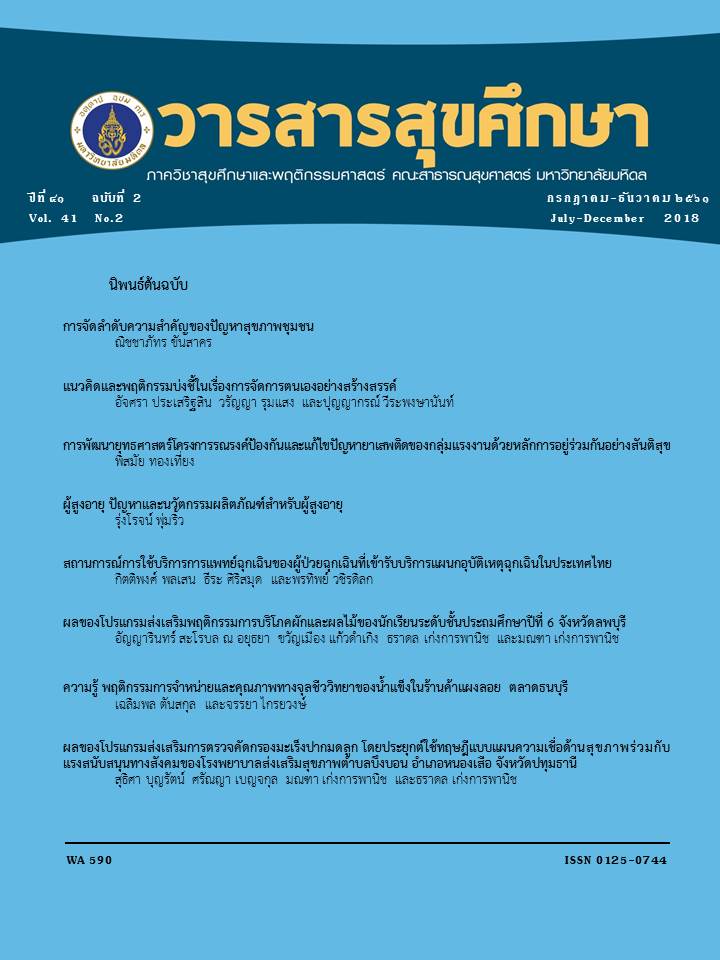Effects of Promoting Fruit and Vegetable Consumption Behavior Program in Grade 6 Students, Lopburi Province
Keywords:
Self-efficacy, Fruit and vegetable consumption, Promoting fruit and vegetable consumption behavior programAbstract
This study on the effects of promoting fruit and vegetable consumption behavior program of grade 6 students in Lopburi Province was a quasi-experimental research, two group pretest-posttest design. The purpose was to compare between experimental group and comparison group before and after activities about knowledge of fruit and vegetable self-efficacy expectations of fruit and vegetable consumption and behavioral fruit and vegetable consumption. The experimental group was composed of 43 grade 6 students, and the comparison group was composed of 44 grade 6 students. The program was lasted for 3 weeks, and the learning activities organized were: lecture about the benefits of vegetable and fruit consumption; demonstration of easy cooking with vegetables and fruits; role-playing; presenting live and symbolic models; exhibiting bulletin board; using wire broadcasting; providing school lunch program; and establishing supportive home environment by working cooperatively with students’ guardians. Data collection was done by using questionnaire and vegetable and fruit consumption-recording form. Data were analyzed by computing descriptive statistics, Paired t-test and Independent t-test.
After the experiment, it was found that the students in the experimental group had significantly higher knowledge score of vegetables and fruits than before experiment and than that of the comparison group (p<0.05). No Significant difference was found in regard to perceived self-efficacy and outcome expectation of the benefits of vegetable and fruit consumption mean scores compared to before experimentation and the comparison group. Significantly higher level of vegetable and fruit consumption behavior during the week-day was found between the experimental group compared to before the experiment and the comparison group (p<0.05), but no significant difference of vegetable and fruit consumption was found during the weekend.



